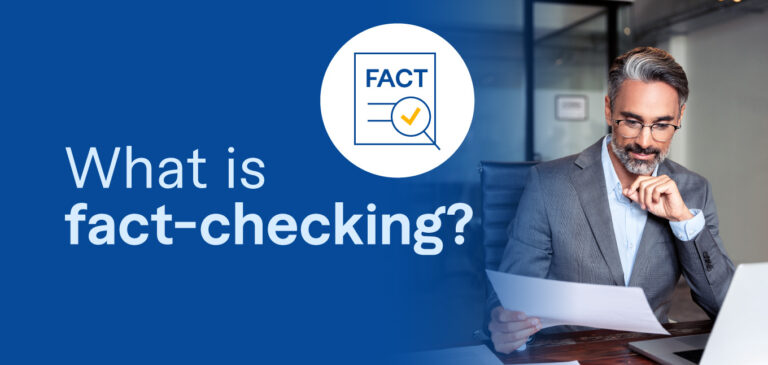Ah, parts of speech. We talk about them all the time.
Or, for many of us, the last time we discussed parts of speech was in our third-grade English class. We watched season two of “Schoolhouse Rock.” Then, we practiced circling the nouns, underlining the verbs in sample sentences, and moved on with our lives, forgetting all about our wonderful time with the parts of speech.
Pop quiz! Can you name the eight primary parts of speech? Actually, you don’t have to, because we did it for you!
Here’s a quick refresher.
8 Parts of Speech Cheat Sheet
Let’s start with the answer key:
- Noun
- Pronoun
- Verb
- Adjective
- Adverb
- Preposition
- Conjunction
- Interjection
Did you get them all?
Here’s a bigger question: Do you know how to use each of these eight parts of speech? Consider this your parts-of-speech cheat sheet!
1. Noun
Nouns are classically known as people, places, and things.
Nouns can be the subject of the sentence (the person, place, or thing performing an action) or the object (the person, place, or thing on the receiving end of the action).
Example: Michelle writes for ClearVoice.
In this sentence, both “Michelle” and “ClearVoice” are nouns. Michelle is the subject because she is the noun performing the writing. And ClearVoice is the object because ClearVoice is the recipient of the writing.
2. Pronoun
Pronouns are like shorthand for nouns; they take the place of a noun. Pronouns are useful because no one wants the noun spelled out every time. Imagine reading:
Michelle writes for ClearVoice. Michelle holds an MBA in Business Management and Strategy, so Michelle is well-qualified to cover business topics.
Painful, right? But if you substitute the pronoun she in place of Michelle, it reads more smoothly.
Example: Michelle writes for ClearVoice. She holds an MBA in Business Management and Strategy, so she is well-qualified to cover business topics.
Ah, that’s better. Thanks, pronouns.
3. Verb
Verbs are commonly known as the actions of the sentence.
Example: I ran yesterday.
In this sentence, ran is the action word, so it is the verb. But verbs can also be states of being that link a subject to another noun or an adjective.
Example: She is a runner.
“Is” is the verb in this sentence because it equates “she” to “runner”.
4. Adjective
Adjectives describe nouns.
Example: The colorful candies sparkled behind the counter.
In this sentence, “colorful” describes candies, so colorful is the adjective.
5. Adverb
Just like adjectives describe nouns, adverbs describe verbs. And they commonly end in -ly.
Example: You can walk quickly, slowly, or happily.
Example: You can write seriously, casually, or educationally.
All these -ly words describe verbs.
6. Preposition
A preposition gives you context about a noun by telling you how a noun relates to other words in the sentence. That sounds vague, but an example will help.
Example: Steve works from his laptop.
Steve is the subject; works is the verb. And the word “from” gives you more context about how Steve works. How does he work? He works from his laptop. From is the preposition.
Think of prepositions as relational builders. Common prepositions include words like:
- On
- Beside
- With
- Near
- Across
- Below
- Etc.
Prepositions kick off prepositional phrases, which are the complete phrases used to describe the relationship of a given noun to something else in the sentence. In our example, from is the preposition, and the prepositional phrase is from his laptop.
7. Conjunction
Conjunctions join other parts of speech to give you more fluid writing.
When you think of conjunctions, you probably immediately go to the coordinating conjunctions, known by the acronym FANBOYS: for, and, nor, but, or, yet, so.
Example: Jason and I got dinner but not dessert.
This example has two coordinating conjunctions:
- And joins Jason and I
- But compares dinner to dessert.
In addition to coordinating conjunctions, there are subordinating conjunctions. Subordinating conjunctions link phrases in a sentence to explain the why, when, and where.
Example: We got dinner because work ran late.
Because explains why we got dinner, so because is the subordinating conjunction.
Other subordinating conjunctions include since, therefore, before, and after.
8. Interjection
Wow! We’re already at the end of our parts of speech list. Interjections are words that express sudden feelings, like “wow.”
The term interjection is based on Latin words inter (meaning between) and jacĕre (meaning to throw). So an interjection is a word you throw in between the rest of the text because you feel a sudden need to exclaim.
Example: Yay! We learned so much about the parts of speech today.
Elevate Your Writing Career Today
Although it may feel slightly tedious to go through a basic primer on these parts of speech, they’re important! The more airtight your grammar is in your writing, the more professional it will come off. And that will lead to more work and, more importantly, more money!
Speaking of more money, we have another way you can expand your career right now. Join our Talent Network and we’ll match you with brands that fit your expertise and skill set to help you skyrocket your career in no time.







